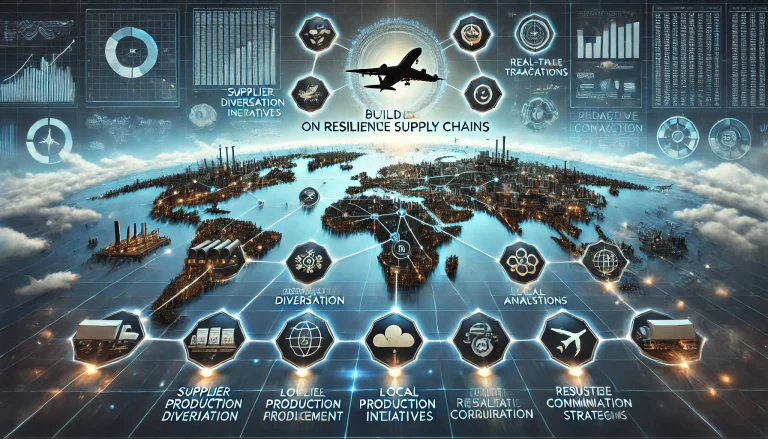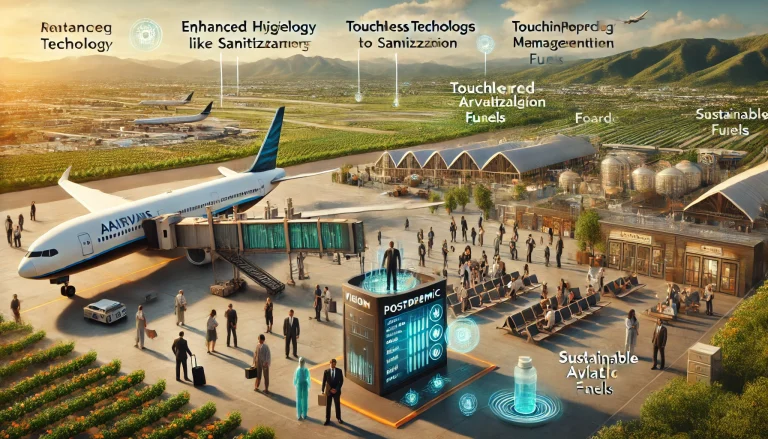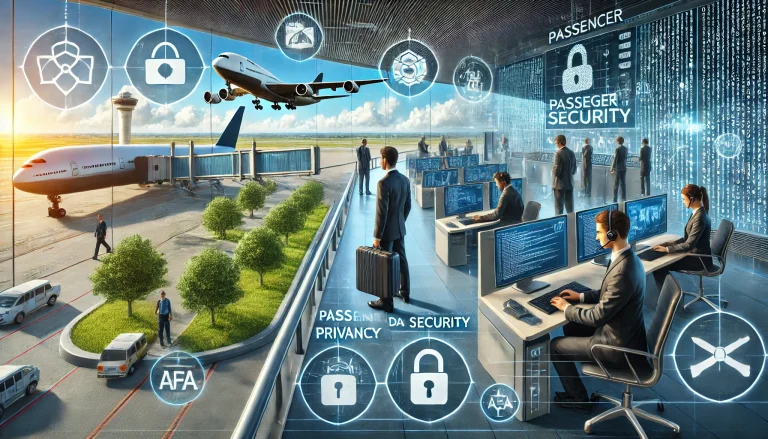Problem Statement
As global demand for air travel continues to rise, airlines face the complex challenge of balancing growth with sustainability. Expanding fleets, adding routes, and accommodating more passengers are essential for meeting market demand and driving economic growth. However, these expansions come with significant environmental costs, particularly in the form of increased carbon emissions, noise pollution, and resource consumption.
The aviation industry is a major contributor to greenhouse gas emissions, and as more flights take to the skies, the sector’s environmental footprint grows. This has raised concerns among environmental groups, regulatory bodies, and the public, leading to increased scrutiny and calls for action. Airlines must navigate the tension between pursuing growth and minimizing their environmental impact, a challenge that requires innovation, investment, and strategic planning.
One of the primary environmental concerns associated with air travel is carbon emissions. Jet fuel combustion releases significant amounts of carbon dioxide (CO2) into the atmosphere, contributing to global warming. As airlines expand their fleets and add new routes, the cumulative carbon footprint of the industry increases. This has prompted airlines to explore alternative fuels, such as sustainable aviation fuels (SAFs), and to invest in more fuel-efficient aircraft to reduce emissions per flight.
In addition to carbon emissions, expanding air travel can lead to other environmental impacts, such as increased noise pollution around airports, greater demand for land and resources, and heightened pressure on local ecosystems. Airlines must also consider the social and economic impacts of their expansion, particularly in terms of community relations and public perception.
To address these challenges, the aviation industry must embrace sustainable practices that enable growth while minimizing environmental harm. This includes investing in green technologies, such as electric and hybrid aircraft, improving operational efficiency, and adopting practices that reduce waste and conserve resources. Collaboration with governments, environmental organizations, and other stakeholders is also crucial in developing and implementing sustainability initiatives that balance growth with environmental stewardship.
Pain Points
- Increased Carbon Emissions: Expanding fleets and adding routes lead to higher carbon emissions, contributing to global warming.
- Noise Pollution: More flights result in increased noise pollution, particularly in communities near airports.
- Resource Consumption: Expanding operations requires more resources, including fuel, materials, and land, putting pressure on natural ecosystems.
- Public and Regulatory Scrutiny: The aviation industry’s environmental impact is under increasing scrutiny from regulators, environmental groups, and the public.
- Operational Efficiency: Balancing growth with the need to improve operational efficiency and reduce waste.
- Investment in Green Technologies: The high cost and long development timelines of green technologies, such as electric and hybrid aircraft.
- Alternative Fuels: The challenges of developing and scaling sustainable aviation fuels (SAFs) to reduce carbon emissions.
- Community Relations: Managing the social and economic impacts of expanding operations on local communities.
- Sustainability vs. Profitability: The challenge of maintaining profitability while investing in sustainable practices and technologies.
- Global Collaboration: The need for global cooperation and standardization of sustainability initiatives across the aviation industry.

Future Vision
Our platform envisions a future where the aviation industry achieves sustainable growth through innovation, collaboration, and a commitment to environmental stewardship. To reach this goal, the platform will support airlines in adopting practices and technologies that reduce their environmental impact while enabling expansion to meet growing demand.
One of the key focuses will be on reducing carbon emissions. The platform will advocate for the accelerated development and adoption of sustainable aviation fuels (SAFs), which can significantly lower the carbon footprint of air travel. Airlines will be encouraged to invest in the research, production, and use of SAFs, as well as in more fuel-efficient aircraft. The platform will also support the exploration of electric and hybrid aircraft technologies, which have the potential to revolutionize the industry by reducing reliance on fossil fuels.
Operational efficiency will be another priority. Airlines will be guided in implementing practices that optimize fuel usage, minimize waste, and reduce resource consumption. This could include adopting advanced flight planning software, improving ground operations, and exploring innovations in air traffic management that reduce delays and fuel burn.
Noise pollution is a significant concern for communities near airports. To address this, the platform will promote the development and deployment of quieter aircraft and the adoption of flight paths and operational procedures that minimize noise impact. Airlines will be encouraged to engage with local communities to address concerns and collaborate on solutions that balance growth with the well-being of residents.
Public and regulatory scrutiny of the aviation industry’s environmental impact is expected to continue growing. The platform will support airlines in engaging with regulators and environmental organizations to develop and implement sustainability initiatives that meet or exceed industry standards. This includes setting ambitious emissions reduction targets, reporting on environmental performance, and participating in global sustainability initiatives.
Collaboration across the industry will be essential to achieving sustainable growth. The platform will foster partnerships between airlines, governments, technology providers, and environmental organizations to advance the development and adoption of green technologies. Airlines will be encouraged to share best practices, invest in joint research and development projects, and contribute to the creation of industry-wide sustainability standards.
By addressing these challenges and embracing sustainable growth strategies, the aviation industry can expand its operations while minimizing its environmental impact. This approach will not only help airlines meet the demands of a growing market but also position them as leaders in environmental stewardship and corporate responsibility.
Use Cases
- Sustainable Aviation Fuels (SAFs): Encouraging airlines to invest in the development and use of SAFs to reduce carbon emissions.
- Electric and Hybrid Aircraft: Supporting the exploration and adoption of electric and hybrid aircraft technologies to reduce reliance on fossil fuels.
- Operational Efficiency Improvements: Implementing practices that optimize fuel usage, minimize waste, and reduce resource consumption.
- Noise Pollution Reduction: Promoting the development of quieter aircraft and the adoption of noise-reducing operational procedures.
- Public and Regulatory Engagement: Collaborating with regulators and environmental organizations to develop and implement sustainability initiatives.
- Community Relations Initiatives: Engaging with local communities to address concerns related to expansion and environmental impact.
- Green Technology Investment: Guiding airlines in investing in green technologies that support sustainable growth.
- Global Collaboration on Sustainability: Fostering partnerships and sharing best practices across the aviation industry to advance sustainability.
- Environmental Reporting and Transparency: Encouraging airlines to set emissions reduction targets, report on environmental performance, and participate in global initiatives.
- Sustainability vs. Profitability Strategies: Developing strategies that balance the need for profitability with investment in sustainable practices and technologies.
Target Users and Stakeholders
- User: Airline Sustainability Managers, Operations Teams, Environmental Compliance Officers, Corporate Strategy Teams, and Technology R&D Teams
- Age Group: 30-60 years
- Gender: M/F
- Usage Pattern: Regular usage for developing, implementing, and monitoring sustainability initiatives in the aviation industry
- Benefit: Enhanced environmental performance, improved regulatory compliance, and sustainable growth aligned with corporate responsibility goals
- Stakeholders:
- Airlines: Companies that need to expand operations sustainably while minimizing environmental impact.
- Airports: Facilities that are impacted by increased air travel and need to collaborate on sustainability initiatives.
- Technology Providers: Companies developing green technologies, such as electric and hybrid aircraft, and sustainable aviation fuels.
- Environmental Organizations: Groups that advocate for sustainable practices and work with the aviation industry to reduce environmental impact.
- Regulatory Bodies: Agencies that set and enforce environmental standards for the aviation industry.
- Local Communities: Residents affected by noise pollution, environmental degradation, and other impacts of airline expansion.
Key Competition
- Lufthansa: Known for its leadership in sustainable aviation, investing in SAFs and exploring innovative technologies to reduce carbon emissions.
- KLM Royal Dutch Airlines: Actively engaged in sustainability initiatives, including the development and use of SAFs and implementing fuel-efficient practices.
- Air France: Committed to reducing its environmental impact through fleet modernization, SAF investment, and noise pollution reduction strategies.
- British Airways: Focuses on sustainability through carbon offset programs, SAF development, and collaboration with environmental organizations.
- Qantas Airways: Implements a comprehensive sustainability strategy that includes fleet renewal, operational efficiency, and investment in green technologies.
Products/Services
- Lufthansa SAF Investment: Investing in the development and use of sustainable aviation fuels to reduce carbon emissions.
- KLM Fuel-Efficient Practices: Implementing advanced flight planning and operational efficiency improvements to reduce fuel usage.
- Air France Fleet Modernization: Replacing older aircraft with more fuel-efficient models to lower emissions and noise pollution.
- British Airways Carbon Offset Programs: Offering carbon offset options for passengers and investing in environmental projects to balance emissions.
- Qantas Green Technology Investment: Investing in research and development of green technologies, including electric and hybrid aircraft.
Active Startups
- EcoFlight: Focuses on developing and scaling sustainable aviation fuels (SAFs) to reduce the carbon footprint of air travel.
- GreenAero: Specializes in the design and production of electric and hybrid aircraft, aiming to revolutionize the aviation industry.
- QuietSkies: Develops noise reduction technologies and quieter aircraft engines to minimize the impact of air travel on local communities.
- FlightFuel: Provides advanced flight planning software that optimizes fuel usage and reduces carbon emissions for airlines.
- AirCleanTech: Innovates in air quality management and waste reduction technologies for airports and airlines.
- SkyRenew: Offers carbon offset programs and environmental impact assessment tools tailored for the aviation industry.
- SustainJet: Specializes in green technology solutions, including electric propulsion systems and sustainable materials for aircraft manufacturing.
- EcoRoute: Develops AI-driven route optimization tools that minimize fuel consumption and environmental impact.
- GreenFleet: Focuses on fleet renewal strategies, helping airlines transition to more fuel-efficient and environmentally friendly aircraft.
- AeroBio: Innovates in biofuel production and distribution, providing airlines with sustainable fuel alternatives.
Ongoing Work in Related Areas
- Sustainable Aviation Fuel (SAF) Research: Advancing the development and scaling of SAFs to reduce the carbon footprint of the aviation industry.
- Electric and Hybrid Aircraft Development: Exploring new technologies and designs for electric and hybrid aircraft that offer lower emissions and greater efficiency.
- Noise Pollution Mitigation: Researching and developing technologies and operational procedures that reduce noise pollution around airports.
- Operational Efficiency Innovations: Creating new tools and strategies for optimizing flight planning, fuel usage, and ground operations.
- Environmental Reporting Standards: Developing global standards for environmental reporting and transparency in the aviation industry.
- Community Engagement Models: Designing frameworks for effective engagement with local communities impacted by airline expansion.
- Green Technology Integration: Researching methods for integrating green technologies into existing airline and airport operations.
- Global Sustainability Initiatives: Collaborating on international efforts to standardize and promote sustainability practices across the aviation industry.
- Carbon Offset Program Development: Creating and refining carbon offset programs that provide real environmental benefits and align with industry goals.
- Profitability and Sustainability Balance: Analyzing and developing strategies that allow airlines to maintain profitability while investing in sustainable practices.
Recent Investment
- EcoFlight: $20M in Series B funding led by clean energy venture capital firms, March 2021.
- GreenAero: $15M in Series A funding from tech-focused venture capital firms, June 2020.
- QuietSkies: $10M in Series A funding from environmental impact investors, September 2021.
- FlightFuel: $8M in Seed funding led by aviation technology investors, January 2021.
- SkyRenew: $7M in Series A funding from sustainability-focused investment firms, December 2020.
Market Maturity
The market for sustainable aviation solutions is rapidly maturing as airlines and airports recognize the urgent need to balance growth with environmental stewardship. Companies like Lufthansa, KLM, and Air France are leading the way with investments in sustainable aviation fuels, fleet modernization, and noise reduction technologies. Startups such as EcoFlight, GreenAero, and QuietSkies are pushing the boundaries of innovation with sustainable aviation fuels, electric aircraft, and noise mitigation technologies. Significant investments in SAF research, electric and hybrid aircraft development, and operational efficiency innovations are transforming the aviation industry, enabling airlines to expand operations sustainably while minimizing their environmental impact. As the market continues to evolve, we expect to see more integrated and advanced solutions that support sustainable growth and position the aviation industry as a leader in environmental responsibility.
Summary
As the demand for air travel increases, airlines face the challenge of balancing growth with sustainability. Expanding fleets, adding routes, and increasing passenger numbers can lead to greater environmental impacts, including higher carbon emissions. The industry must find ways to grow sustainably, such as investing in green technologies and adopting more efficient practices. Our proposed platform leverages sustainable aviation fuels (SAFs), electric and hybrid aircraft, operational efficiency improvements, noise pollution reduction, public and regulatory engagement, community relations initiatives, green technology investment, global collaboration on sustainability, environmental reporting and transparency, and sustainability vs. profitability strategies to address these challenges. Key pain points include increased carbon emissions, noise pollution, resource consumption, public and regulatory scrutiny, operational efficiency, investment in green technologies, alternative fuels, community relations, sustainability vs. profitability, and global collaboration.
Target users include airline sustainability managers, operations teams, environmental compliance officers, corporate strategy teams, and technology R&D teams, with stakeholders encompassing airlines, airports, technology providers, environmental organizations, regulatory bodies, and local communities. Key competitors like Lufthansa, KLM, Air France, British Airways, and Qantas Airways offer various sustainability initiatives, SAF investments, and green technology strategies, while startups such as EcoFlight, GreenAero, and QuietSkies are driving innovation in SAF development, electric aircraft, and noise mitigation technologies. Recent investments highlight significant interest and growth potential in platforms addressing the challenges of balancing growth with sustainability in the aviation industry.
By addressing these challenges and embracing sustainable growth strategies, our platform aims to help airlines expand operations while minimizing their environmental impact. This approach will not only help airlines meet the demands of a growing market but also position them as leaders in environmental stewardship and corporate responsibility.



